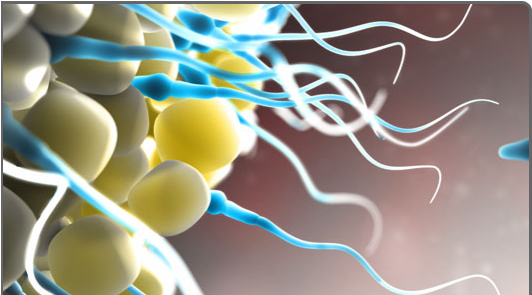New research by Professor James Jaccard, Ph.D., and Nicole Levitz, M.P.H., of the New York University Silver School of Social Work and its Center for Latino Adolescent and Family Health (CLAFH) has led them to suggest 12 evidence-based principles that can be used to improve contraceptive counseling of adolescents in U.S. health care clinics, doctor’s offices, and health service organizations.
Tag: research
Morning-After Pill a Boon for Women
Last week, a federal judge issued a decision lifting the age and point-of-sale restrictions on emergency contraception, citing solid scientific and medical research showing that it is safe and effective in preventing unintended pregnancy.
Study Finds No Fertility Drug, Ovarian Cancer Link
Despite lingering concerns that using fertility drugs might raise a woman’s chances for later developing ovarian cancer, new research suggests the drugs don’t contribute any added risk.
Thousands Rally to Support Medical Research Funding
Several thousand people gathered in Washington on Monday to push Congress to restore more than $2 billion in funding for the National Institutes of Health, warning that without the money, advances in areas such as breast cancer research may be lost.
Risk Factors For Autism Accumulate Over Generations
It was already known that men who father children later in their life are much more likely to have autistic children than younger men, but new research has found that this effect extends to their grandchildren also. This new research shows that risk factors for autism can accumulate over generations, much in the same way as radiation damage and chemical exposure can.
The new findings are the result of a collaboration between King’s College London’s Institute of Psychiatry, Karolinska Institutet in Sweden and the Queensland Brain Institute in Australia.
“By using Swedish national registers, researchers identified 5,936 individuals with autism and 30,923 healthy controls born in Sweden since 1932. They had complete data on each individual’s maternal and paternal grandfathers’ age of reproduction and details of any psychiatric diagnosis.” Read full article.
More Sunlight Months During Pregnancy (Above 42 degrees North) Gives Newborns Longer Thighbones, Study Claims
The seasonal variation of sunlight in Ireland means newborns from Caucasian women who had more sunlight months during their pregnancy (April – Sep) are more likely to have longer thighbones, according to new research.
Women with migraine with aura advised of contraception risk
Certain types of modern contraception could be risky for women who have migraines with aura, a new study has found.
According to research unveiled at this year’s meeting of the American Academy of Neurology, these females are more likely to experience deep vein thrombosis and other blood clot complications. Women have therefore been urged to bear this in mind when deciding how to proceed with family planning.
Dr Shivang Joshi, a specialist at Brigham and Women’s Falkner Hospital in Boston, commented: “Women who have migraine with aura should be sure to include this information in their medical history and talk to their doctors about the possible risks of newer contraceptives, given their condition.”
The study also showed that migraine with aura is second only to high blood pressure as the biggest cause of heart attacks and strokes. Read full article.
Is There an Age Limit to Male Fertility?
The world’s oldest new dad, who, at the reported age of 96, just fathered a baby boy in India, says he’s done having kids. But if he wanted to break his record again in a couple years, would biology allow it?
Though sperm production does usually keep up until a man’s dying day, it’s a misconception that “biological clocks” are only of concern to women.
The effects of aging on fertility have been studied far less in men than in women, but research shows that both volume and quality of semen generally fall off as a man gets older.
A 2004 study published in the American Journal of Obstetrics and Gynecology found that, among a sample of couples using in vitro fertilization, every additional year of a man’s age corresponded to an 11-percent increase in the odds that a couple would not achieve a pregnancy. Read full article.
New Egg Donor Informed Consent Tool (EDICT) Demonstrates and Documents Prospective Donors’ Understanding
Prospective egg donors must assimilate a great deal of information in the informed consent process, yet it remains difficult to determine the extent of their actual understanding of egg donation and its potential risks. To address this need, researchers at the University of California San Francisco have developed and are presenting at ASRM’s Annual Meeting a two-part assessment of informed consent effectiveness, the Egg Donor Informed Consent Tool (EDICT).
Go Get Some Sun: Live Birth Rates Are Higher for Donor Egg ART in Sunnier Climates
At the 68th Annual Meeting of the American Society for Reproductive Medicine, a bicoastal research team will report evidence that sunlight exposure may have an effect on the success of ART cycles using donor eggs.
